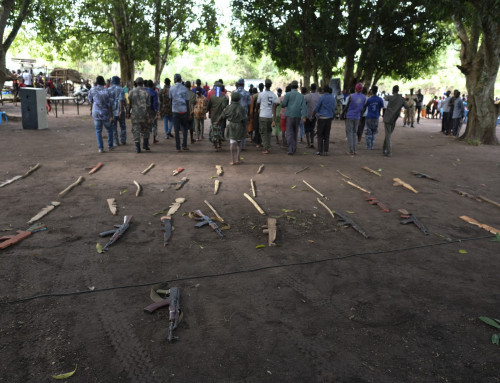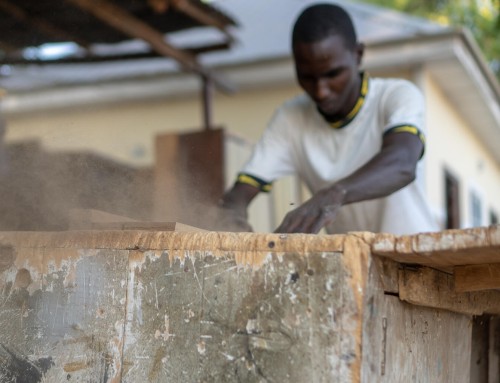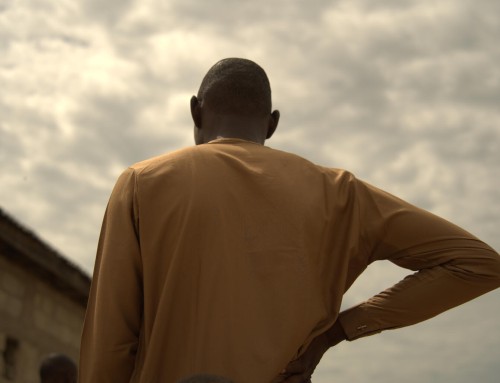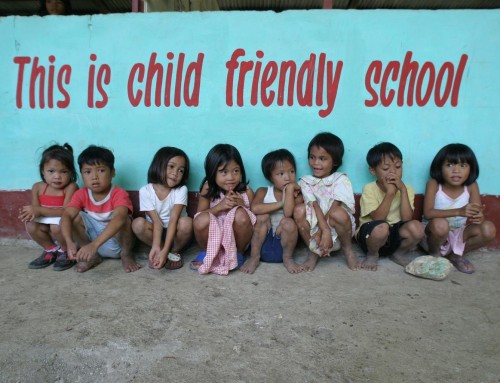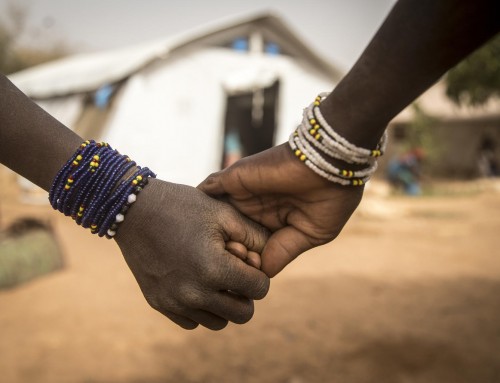This story was produced in cooperation with WPDI 
“I don’t want any other children to suffer as I did”
Rajab is an enthusiastic 26 years old South Sudanese national currently living in the Kiryandongo refugee settlement, located by the town of Bweyale in Uganda. This refugee settlement hosts over 65,000 people, of which 80% are women and children.
South Sudan’s most recent internal conflict, which started in late 2013, has disproportionately impacted children, including Rajab. He was lured and recruited into the Sudan People’s Liberation Army (SPLA) at the age of 15 years and served the armed group for three years. According to the latest Secretary-General Annual Report on Children and Armed Conflict, the recruitment and use of children still remains the most widely reported grave violation in South Sudan.
“We had to go through military training. It was hard because as a child, you have nothing to do in the armed group. There is no food, no medicine, no blanket to keep you warm during the night. You have to carry a 7-kilo gun, walk many kilometers and move day and night.”
Rajab eventually escaped the group and took refuge in Uganda where he is currently settled.
“When I arrived, I was alone. I did not have any relatives here. I didn’t know anyone.”
Rajab was identified as a child released from armed elements and as of 2017 received crucial and comprehensive reintegration support from the Whitaker Peace and Development Initiative (WPDI) that helped him rebuild his life. Children’s participation in conflict bears serious implications for their physical and emotional well-being, but with adequate and sustainable reintegration support, they can often recover from traumatic experiences and play an active and positive role in their communities.

Photo: WPDI
Rajab joined the Youth Peacemaker Network under the WPDI flagship program and went through a rigorous training in Conflict Resolution Education.
“The training empowered me with practical mediation skills that supported the peaceful resolution of conflicts in my community. Mitigating conflicts has led to reduced numbers of gender-based violence incidents and strengthened referral pathways for effective and timely management of cases.”
Through this program, he also received mental healing support and specific training in Business and Entrepreneurship skills as well as Information Communication Technology, which helped him trace some relatives via Facebook and WhatsApp.
“The WPDI training has transformed me into a vibrant youth leader, more tolerant, peaceful, accommodative and passionate about promoting peaceful co-existence in my community.”
Rajab successfully graduated as a Trainer of Trainees (ToT) able to promote peace at the grassroots level within the Kiryandongo settlement. From child soldier, he became agent of change acting to build more inclusive societies and social cohesion.
“I feel happy and at peace when I’m with WPDI because they have changed my life: without them I couldn’t have become who I am today.”
He conducted several community-level peacebuilding trainings that have transformed the lives of 368 youths from idleness to being productive, becoming themselves grassroots peace force and entrepreneurs in their respective communities.
“My dream is to acquire a thorough knowledge on conflict resolution and peacebuilding and to go back to South Sudan and help my people overcome the conflict and protracted violence. I want to be part of the solution.”
Rajab’s story shows how supporting child reintegration is a strategic intervention for all stakeholders interested in reducing conflict—governments, donors and agencies—and moving towards the attainment of the Sustainable Development Goals (SDGs). Children and young people are a force for change and renewal.
Learn more about the work of WPDI.
Learn more about the reintegration of children associated with armed forces or armed groups.


